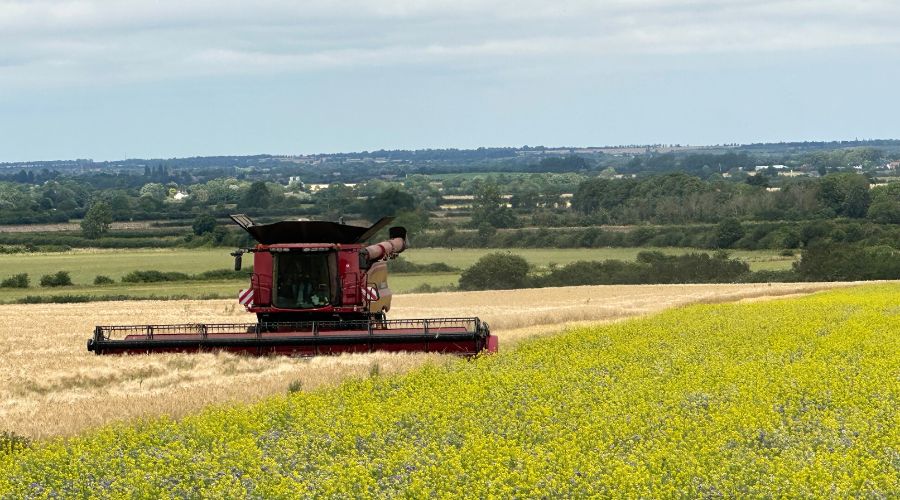Cambridgeshire farmer explains how his nature-friendly approach helps boost yields
7th August 2024
A Cambridgeshire farmer and CEO of the Nature Friendly Farming Network (NFFN) explained how the environment-friendly practices help him boost yields.

Based at Papley Grove Farm in St Neots, Martin Lines, a third-generation mixed farmer and contractor, said that this year’s harvest of oilseed rape has been a “very mixed bag”.
He added: “The yields have been very disappointing on fields that laid wet over the winter.
“However, other fields that maintained good soil structure produced better crops. The same happened with our winter barley. We had some waterlogging issues in places, but overall the yields are pleasing.”
READ MORE: Farmer welcomes payments for introducing wildlife
Nature-friendly approach
Mr Lines confirmed that the quality of his winter barley is good, however, it had issues with ergot.
He also explained how the nature-friendly approach helps him achieve better yields.
The Cambridgeshire farmer has been balancing day-to-day farming practices with encouraging wildlife on his lands for years and has noticed significant benefits from it.

He said: “We don’t need to use any slug pellets on our winter barley. We’ve found that delivering good habitat in the field and around the outside has increased the number of beetles.
“While I’m seeing many other growers have high levels of slug populations, we seem to have less.
“Also, our improved soil health techniques, which include minimum cultivation, controlled traffic and building organic matter, helped preserve better soil conditions throughout the winter and beyond.
“The evidence of changing our farming practices to mitigate climate change is giving good results.”
Mr Lines farms just under 500ha of winter wheat, winter barley, winter beans and WOSR, as well as spring beans and spring barley.
The farm also includes livestock and herbal leys, and does not have a rigid arable rotation system, as the team prefers to react to problems that occur accordingly.
He added that the chalky boulder clay soil on his farm has seen a significant improvement in health over the last few years.
The farm uses the direct drilling method, and puts a cover crop in just after harvest.
Read more arable news.


